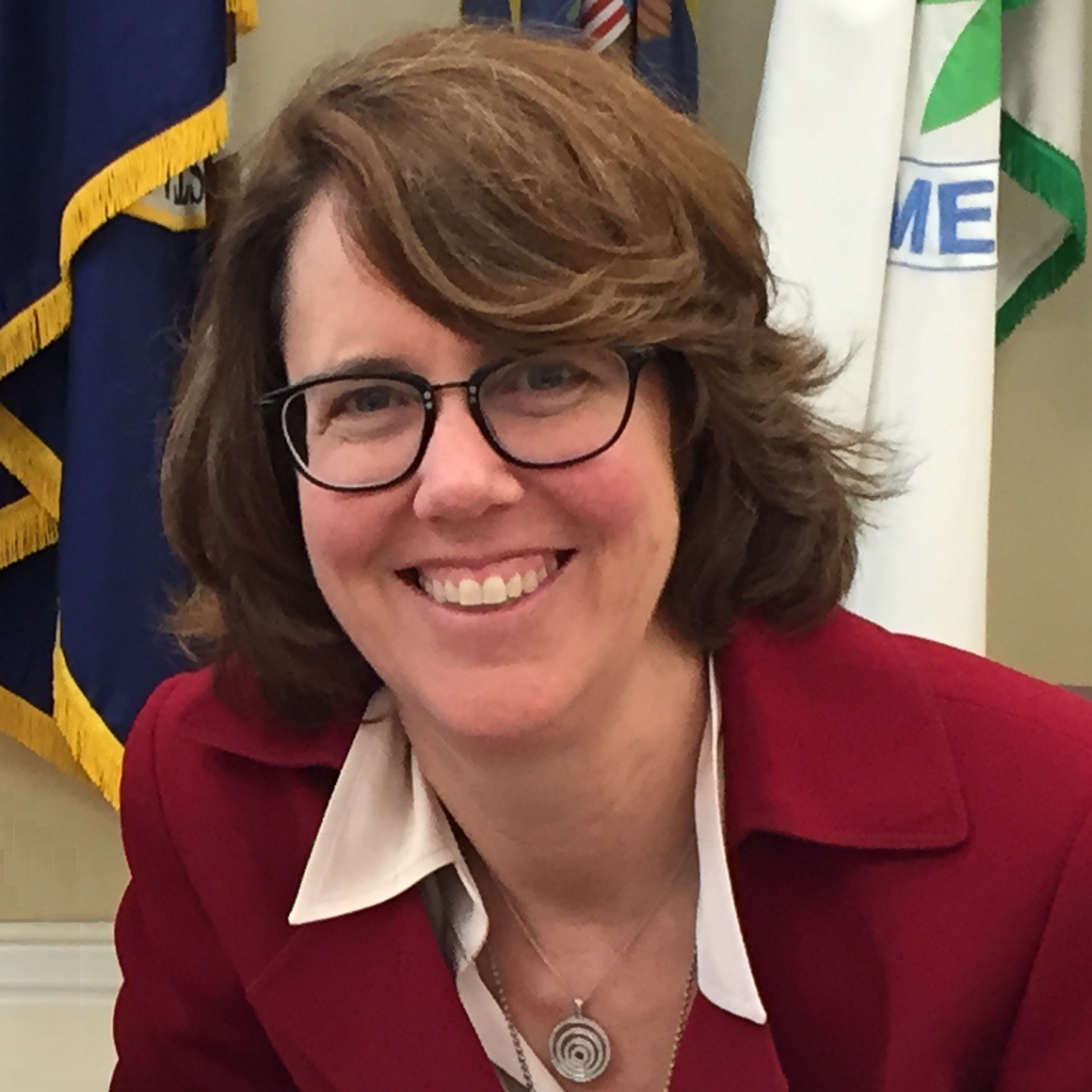NCHH and Coalition Campaign on Capitol Hill
by Julie Kruse and Christopher Bloom
As African refugees who immigrated to Rhode Island in 2007 to start a new life, Teddi Jallow and her husband were excited and proud when they were able to become homeowners and achieve a piece of the American dream; but she was also worried about the safety of young family they were starting. They’d invested all of their savings in an older home in Rhode Island, one that they now suspected might contain lead hazards, and had no funds left over to correct the hazard. Thankfully, the City of Providence’s HUD-funded lead remediation grant program enabled this vulnerable family to address potential lead hazards proactively and protect their children’s health.
Ms. Jallow shared her story with members of Congress on February 10, when National Safe and Healthy Housing Coalition (Coalition) members and National Center for Healthy Housing (NCHH) staff took to Capitol Hill for a full day of meetings with senators and representatives to highlight the vital need for full funding for lead poisoning prevention, lead hazard control, and healthy homes, particularly in the wake of the Flint water crisis. Ms. Jallow met with Senator Jack Reed (D, RI), Senator Sheldon Whitehouse (D, RI), and Representative David Cicilline (D, RI-1) to explained how a HUD-funded remediation grant from the City of Providence made it possible for her family to afford the necessary home improvements that have kept her children lead-free.

In this undated photo, Betty Cantley of Cleveland, Ohio, poses with her young sons, including Jason (front), who has suffered a permanent injury due to lead exposure.
Betty and James Cantley of Cleveland, Ohio, had a very different tale to tell. Their son, Jason, suffered permanent injury from lead dust exposure as an infant, the result of a contractor renovation that failed to meet lead safety requirements. The Cantleys described their family’s continuing journey with lead poisoning. “[When Jason] started breathing it in,” Betty told the members and their staff, “he was less than a month old; his brain was developing, and his synapses were forming. It was the most crucial point of his life.” Betty’s and James’ compelling story describes the struggles of a family faced with the news that their son was needlessly exposed to dangerous levels of lead dust, how they coped, how essential programs at all governmental levels helped their boy to graduate from high school, and how Jason has become a productive member of society despite facing daily challenges stemming from his early lead exposure.
The Cantleys and Ms. Jallow were among the 27 attendees, hailing from 12 target states and the District of Columbia, who joined NCHH Executive Director Nancy Rockett Eldridge, Director of Policy Julie Kruse, Director of Research Jonathan Wilson, and Project Manager Laura Fudala on Capitol Hill to present to over 80 senators and representatives, more than doubling the number of offices visited in 2015—itself a highly successful campaign. Their purpose was to share their personal stories and educate members of Congress on the importance and impact of lead poisoning prevention, lead hazard control, and healthy homes programs for their constituents’ respective states and districts as the members soon consider and make critical funding decisions.
Members of Congress from both parties were strongly supportive of the Coalition’s requests to increase funding to expand CDC’s lead poisoning surveillance, prevention, and healthy homes activities nationwide. Funding at $35 million for CDC’s Healthy Homes and Lead Poisoning Prevention Program would support lead poisoning surveillance activities in all 50 states and greatly enhance abilities to identify and respond quickly to future lead poisoning outbreaks.
Further, families of children with elevated blood lead levels, representatives of housing and health agencies, and concerned advocates demanded that Congress take a proactive approach for primary prevention, calling for $230 million annually over 10 years for HUD’s Office of Lead Hazard Control and Healthy Homes. This amount was recommended by the President’s Task Force on Environmental Health Risks and Safety Risks to Children in its Federal Strategy Targeting Lead Paint Hazards to ensure that lead hazards are identified and controlled in low-income homes.
Due to governmental belt-tightening over the last several years, funding to these HUD and CDC programs was cut drastically. Some of the funding has been partially restored, and Coalition members thanked Congress for increasing lead poisoning prevention, healthy homes, and asthma control by $3 million last year. By sharing local stories, attendees pointed to the benefits and cost savings of prevention. Lead poisoning is a preventable tragedy, said Coalition members, as they urged Congress to restore full funding to stop the harm to America’s children. Other highlights of the day included:
- Lenora Smith and other representatives from the Partnership Effort for the Advancement of Children’s Health (PEACH) of Durham, North Carolina, met for an hour with Representative David Price (D, NC-4) to update him on home health hazards in his district. They also thanked Representative Price for offering two amendments to increase healthy homes and lead hazard control funding, and for discussing PEACH’s efforts in Durham combating lead poisoning at a hearing last year.
- Other attendees described the prevention and hazard control services in their homes states that have helped promote health, elevate their communities, and protect families.
- Congresswoman Louise Slaughter (D, NY-25) and her staff hosted a breakfast orientation to launch the day, and attendees appreciated the opportunity to thank her for her long-time championing of healthy homes issues in Congress.
- Attendees from Rhode Island and New Hampshire also thanked Senator Jack Reed (D-RI), Senator Jeanne Shaheen (D-NH), and Representative David Cicilline (D, RI-1) for leading sign-on letters, and Representative Slaughter for increased funding for lead poisoning prevention and healthy homes. Mainers also expressed gratitude to Senator Susan Collins (R-ME) for her long-standing support for ending lead poisoning, and her supportive comments at a hearing last year.
Results from the Coalition’s Hill visit were immediately apparent in the large increase of signatories to this year’s congressional sign-on letters:
- 75 representatives signed on to Representative Slaughter and Representative Cicilline’s letter to increase funding for lead poisoning prevention and healthy homes (51 more than last year).
- 24 senators signed on to Senator Reed’s and/or Senator Shaheen’s letters to increase funding for lead poisoning prevention and healthy homes (five more than last year).
NCHH and the National Safe and Healthy Housing Coalition wish to thank the Childhood Lead Action Project, the Green & Healthy Homes Initiative, Habitat for Humanity International, and Rebuilding Together for helping to staff this successful day!
 Julie Kruse, worked as NCHH’s director of policy from November 2014 to January 2017, passionately advocating for safe, healthy, and affordable housing of high quality. In her long and distinguished career, she has served such organizations as the Immigration Equality Action Fund, the Center for Economic Progress, Chicago Women in Trades, and the Midwest Women’s Center. Since 2017, she has worked with the Family Equality Council’s public policy team to gain legal equality for LGBTQ families, LGBTQ youth needing families, and LGBTQ adults waiting to foster or adopt in the U.S. Ms. Kruse holds a B.S. in biology from the University of Illinois at Urbana and a Master of Science in education from Northwestern University.
Julie Kruse, worked as NCHH’s director of policy from November 2014 to January 2017, passionately advocating for safe, healthy, and affordable housing of high quality. In her long and distinguished career, she has served such organizations as the Immigration Equality Action Fund, the Center for Economic Progress, Chicago Women in Trades, and the Midwest Women’s Center. Since 2017, she has worked with the Family Equality Council’s public policy team to gain legal equality for LGBTQ families, LGBTQ youth needing families, and LGBTQ adults waiting to foster or adopt in the U.S. Ms. Kruse holds a B.S. in biology from the University of Illinois at Urbana and a Master of Science in education from Northwestern University.
 Christopher Bloom is NCHH’s communications and marketing officer. He joined NCHH in 2008 after nearly a decade in the real estate industry. In a previous role at NCHH, he coordinated a national Renovation, Repair, and Painting (RRP) training program, one of the most successful in the nation. He holds a Bachelor of Arts degree in English Textual Studies from Syracuse University.
Christopher Bloom is NCHH’s communications and marketing officer. He joined NCHH in 2008 after nearly a decade in the real estate industry. In a previous role at NCHH, he coordinated a national Renovation, Repair, and Painting (RRP) training program, one of the most successful in the nation. He holds a Bachelor of Arts degree in English Textual Studies from Syracuse University.